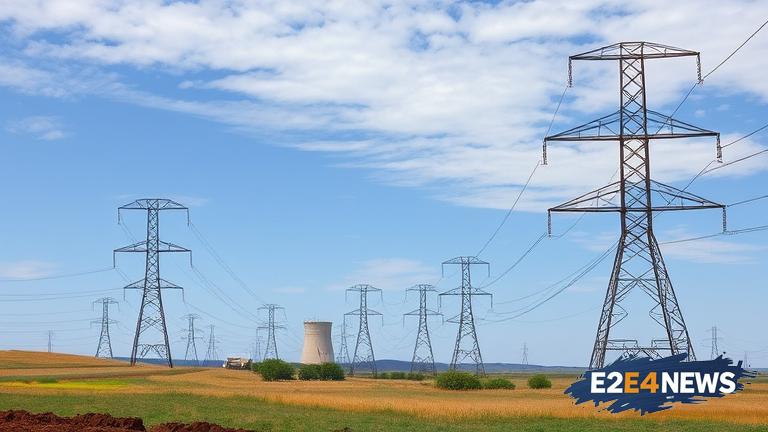The Environmental Protection Agency’s (EPA) proposed plan to roll back climate regulations has sparked widespread concern among experts, stakeholders, and environmental groups. The plan, which aims to replace the Clean Power Plan, has been criticized for its potential to increase power sector instability and undermine efforts to combat climate change. The Clean Power Plan, introduced by the Obama administration, aimed to reduce carbon emissions from power plants by 32% by 2030. The new plan, however, would give states more flexibility to set their own emissions standards, which could lead to a patchwork of different regulations across the country. This could create uncertainty and instability in the power sector, making it more difficult for companies to invest in clean energy and reduce emissions. Furthermore, the plan has been criticized for its lack of ambition, with many arguing that it does not go far enough to address the urgent threat of climate change. The power sector is a significant contributor to greenhouse gas emissions, accounting for approximately 30% of total US emissions. Reducing emissions from this sector is crucial to meeting the country’s climate goals and avoiding the worst impacts of climate change. The EPA’s plan has also been criticized for its potential impact on public health, with many arguing that it could lead to increased air pollution and negative health effects. The plan has been met with opposition from a number of states, cities, and environmental groups, who are calling for more ambitious action to address climate change. In contrast, some industry groups have welcomed the plan, arguing that it will provide more flexibility and reduce regulatory burdens. However, others have warned that the plan could lead to increased costs and uncertainty for companies, making it more difficult for them to invest in clean energy. The plan is also likely to face legal challenges, with a number of states and environmental groups already indicating that they will sue to block its implementation. The controversy surrounding the plan has highlighted the deep divisions in the US over climate change and energy policy. While some argue that the plan is a necessary step to reduce regulatory burdens and promote economic growth, others see it as a reckless and short-sighted move that will undermine efforts to combat climate change. The power sector is undergoing a significant transformation, driven by advances in technology and changes in consumer demand. Renewable energy sources, such as wind and solar, are becoming increasingly cost-competitive with fossil fuels, and many companies are investing heavily in clean energy. However, the EPA’s plan could undermine this progress, making it more difficult for companies to invest in clean energy and reducing the incentives for innovation and investment. The plan has also been criticized for its potential impact on the US’s international reputation, with many arguing that it will undermine the country’s credibility on climate change and make it more difficult to achieve global cooperation on the issue. The US has historically been a leader on climate change, but the EPA’s plan has raised concerns that the country is abandoning its commitment to reducing emissions and addressing the urgent threat of climate change. In conclusion, the EPA’s proposed climate rollback plan has sparked widespread concern and controversy, with many arguing that it will increase power sector instability and undermine efforts to combat climate change. The plan’s potential impact on public health, the environment, and the economy has been widely criticized, and it is likely to face significant opposition and legal challenges in the coming months.
